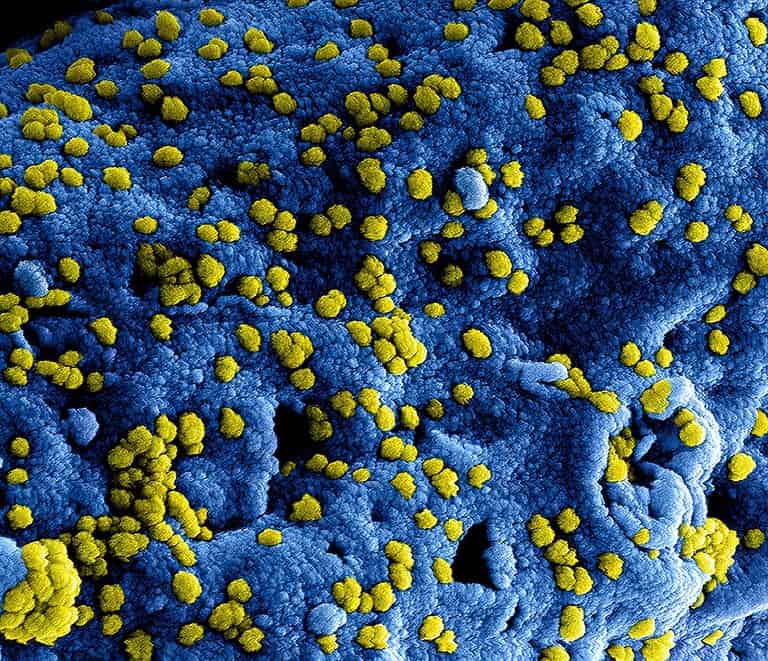How Does Stress Affect Microbiome: Impact and Solutions
Understanding the answer to the question, “How does stress affect microbiome?” Is essential for maintaining optimal health and wellness. Psychological stress is a common element of contemporary life, with repercussions not just for our mental health but also for the composition of our intestinal microbiota.
This intricate relationship between perceived stress and the gut–brain axis plays a significant role in overall health. In this blog post, we will explore the impact of stress on the microbiome. We’ll discuss the effect your diet has on your gut health and mental well-being.
Finally, we’ll touch upon prebiotic and probiotic interventions targeting stress-induced microbial changes. By understanding how does stress affect microbiome intricacies within ourselves better, we can take steps towards healthier living for ourselves and our families.
Table of Contents
- The Impact of Psychological Stress on Gut Microbiota
- Diet’s Role in Gut Health and Mental Well-being
- Diet’s Role in Gut Health and Mental Well-being
- Prebiotic-Probiotic Interventions Targeting Stress-induced Microbial Changes
- FAQs in Relation to How Does Stress Affect Microbiome
- Conclusion
The Impact of Psychological Stress on Gut Microbiota
So, how does stress affect microbiome? Psychological stress can significantly alter the diversity and composition of gut microbiota, which plays a crucial role in controlling the microbiota-gut-brain axis. In a study conducted on rats subjected to psychological stress for half an hour per day over 28 days, it was found that such stress negatively affected their development and caused significant changes in their gut microbiota composition.  Source
Source
The Connection Between Human Gastrointestinal (GI) Microbiota and Brain Function
There is growing evidence supporting the idea that our gastrointestinal (GI) microbiome has a direct impact on brain function. This connection between the gut and brain is often referred to as the “gut-brain axis.” The human GI tract contains trillions of microorganisms, including bacteria, viruses, fungi, and other microbes collectively known as gut microbiota.
These microorganisms play vital roles in digestion, metabolism regulation, immune system functioning, and even mental health. Research suggests that changes in gut microbiome composition due to factors like diet or psychological stress can affect neurotransmitter production levels within our brains. For example, one study found increased levels of anxiety-like behavior among mice with altered microbial populations compared to those with normal bacterial compositions.
How Stress May Change Intestinal Mucosa Permeability And Cytokine Secretion
When we experience psychological stress, our bodies respond by releasing stress hormones like cortisol. These hormones can have a direct impact on the gut microbiome, leading to changes in microbiota composition. One way this occurs is through alterations in intestinal mucosa permeability.
The intestinal lining typically serves as a protective wall, obstructing dangerous substances from entering the body. However, during times of perceived stress, increased cortisol levels may cause this barrier to become more permeable or “leaky.” This allows toxins and bacteria to enter circulation and trigger inflammation.
- Inflammation: Chronic inflammation has been linked with various health issues, such as autoimmune diseases and mental disorders like depression.
- Cytokine secretion: Stress-induced changes in gut microbiota can also lead to altered cytokine secretion patterns. Cytokines are small proteins in cell signaling that play crucial roles in immune system regulation.
Diet’s Role in Gut Health and Mental Well-being
One of the key factors affecting the relationship between gut health and mental well-being is diet. What we consume has a direct impact on our gut microbiota, which in turn influences our brain function through the gut-brain axis. Source
Source
Importance of Early-Life Gut Bacteria in Shaping Long-Term Health Outcomes
The first few years of life are critical for establishing a healthy gut microbiota composition that can influence our physical and mental health throughout adulthood. Research suggests that factors such as mode of delivery (vaginal birth vs. cesarean section), breastfeeding duration, antibiotic exposure, and dietary habits during infancy all play essential roles in determining an individual’s microbiota composition.
- Vaginal birth: Infants born vaginally have been found to possess more diverse gut microbiomes compared to those delivered via cesarean section.
- Breastfeeding: Breast milk is rich in prebiotics that support the growth of beneficial bacteria within the infant’s gastrointestinal tract.
- Antibiotic exposure: Overuse or misuse of antibiotics during early childhood may disrupt normal microbial development by eliminating both harmful pathogens as well as beneficial microbes.
- Dietary habits: A diet rich in fruits, vegetables, whole grains, and fermented foods can promote a diverse gut microbiota that supports optimal mental health.
Strategies for Managing Daily Stresses to Improve Overall Wellness
Incorporating stress management techniques into our daily routines is essential for maintaining a healthy balance between our psychological stress levels and gut microbiota. Here are some strategies that may help improve your overall wellness by reducing the negative impact of perceived stress on your body:
- Mindfulness practices: Mindfulness meditation or yoga can help reduce anxiety and improve mood by promoting relaxation and self-awareness.
- Physical activity: Regular exercise has been shown to decrease cortisol levels (a hormone associated with stress) while enhancing the production of endorphins (natural mood elevators).
- Sleep hygiene: Prioritizing good sleep habits, such as establishing a consistent bedtime routine, creating a comfortable sleep environment, and avoiding caffeine or electronic devices before bed, can contribute to better mental health.
- Nutrition counseling: Consulting with a registered dietitian or nutritionist who specializes in functional medicine approaches may provide personalized dietary recommendations aimed at supporting both gastrointestinal function as well as emotional resilience during times of high-stress situations like exams or work deadlines.
- Mindfulness practices: Engage in meditation, yoga, or deep breathing exercises that encourage relaxation and self-awareness.
- Physical activity: Regular exercise not only helps reduce perceived stress but also promotes the production of beneficial short-chain fatty acids by our gut bacteria.
Prebiotic-Probiotic Interventions Targeting Stress-induced Microbial Changes
Stress can have a significant impact on the gut microbiome, and prebiotic-probiotic interventions may help counteract these changes. By targeting specific strains associated with improved mood states or focusing on general population samples experiencing high-stress situations, researchers are exploring ways to support mental health through gut microbiota manipulation.
Specific Probiotic Strains Associated with Improved Mood States Under Stressful Conditions
Recent studies have identified certain probiotic strains that show promise in improving mood states under stressful conditions. A study exploring the effects of Bifidobacterium longum NCC3001 on individuals with IBS revealed a decrease in depression scores and cortisol levels. Likewise, R0052 and R0175 have been found to potentially reduce stress-induced anxiety in animal models.
Investigating Microbial Response Patterns During High-Stress Situations
To better understand how the gut microbiome responds to stressors like exams or other high-pressure events, some researchers are studying microbial response patterns during such situations. At the University of Colorado Boulder, a week-long “stress test” event was conducted with college students to observe microbial response patterns during high-pressure situations. Throughout the week, participants were evaluated using established mental health surveys and cortisol measurements taken from saliva swabs at different times during each day’s activities.
- Findings: The study found that students who consumed prebiotics and probiotics experienced reduced stress levels compared to those who did not.
- Implications: These results suggest that incorporating prebiotic-probiotic interventions into one’s daily routine may help mitigate the negative effects of psychological stress on gut microbiota composition and overall well-being.
FAQs in Relation to How Does Stress Affect Microbiome
How does stress affect microbiome?
When under stress, our bodies produce hormones such as cortisol which can disrupt the balance of bacteria in the gut. When under stress, the equilibrium of bacteria in the gut can be disturbed, leading to augmented inflammation and digestive issues as well as weakening immune system functioning. Additionally, high levels of stress may reduce beneficial bacterial species while increasing potentially harmful ones that contribute to disease states.
How does cortisol affect the microbiome?
Cortisol is a hormone released in response to stress and has been shown to affect the microbiome. Cortisol can result in a rise of germs that generate pro-inflammatory molecules, which could be responsible for swelling within the body.
Additionally, cortisol can reduce microbial diversity and cause shifts in certain species of microbes that are beneficial for health. Consequently, these changes can cause a range of health problems if not addressed through lifestyle interventions such as dietary adjustments, physical activity, and stress-reduction practices.
How does anxiety affect the gut microbiome?
Anxiety has a significant impact on the gut microbiome. When anxiety is experienced, hormones such as cortisol and adrenaline are released, which can cause inflammation in the gut lining, leading to a disruption of beneficial bacteria balance – potentially causing digestive issues and reducing microbial diversity.
The resulting disruption of the beneficial bacteria in our gut can result in uncomfortable digestive symptoms such as bloating, constipation, or diarrhea. Additionally, research indicates that chronic stress may reduce diversity within our microbial population.
How does cortisol affect the gut?
Cortisol, released by the adrenal glands in response to stress, can impact gut physiology due to its inflammatory properties. When cortisol is at an elevated level due to sustained stress, it can lead to augmented inflammation and alterations in the gut microbiome.
Elevated cortisol can result in digestive troubles, including IBS, swelling, and spasms. In addition, high cortisol levels may also reduce nutrient absorption from food leading to further health complications.
Conclusion
The modern family needs to be aware of the effects that stress can have on their microbiome. Recognizing the need for professional help to address stress-related gut health issues is a crucial step towards improved overall well-being. Understanding how does stress affect microbiome is a critical part of promoting wellness within the home and taking steps towards better overall health.
Take action today to reduce stress and improve your microbiome health. Discover resources that will help you make informed decisions about how best to manage the effects of stress on your overall well-being.







